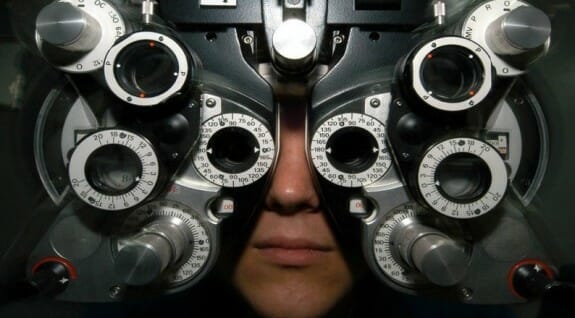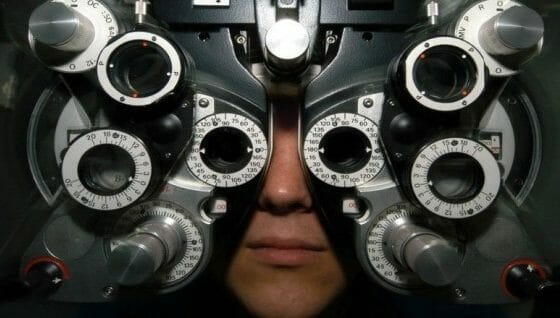
Human eyes are incredibly sophisticated and subtle organs. For most of us, they are one of the primary ways in which we experience the world. Because our eyes play such an important part in our lives—and our health—there are a variety of vision-related medical specialists that have unique foci.
When it comes to understanding eye and vision care options, here are the main differences between Ophthalmologists, Optometrists, and Orthoptists.
Optometrists
Optometrists are medical professionals that, among other things, examine eyes, prescribe and fit corrective lenses, and diagnose and treat certain types of diseases of the eye. In the United States, optometrists are Doctors of Optometry, which typically requires at least four years of postgraduate work, after which candidates must pass a national qualifying exam before they can practice.
They are able to prescribe most types of medicine, and can in some states perform certain laser surgery procedures. For most people who seek eye care, a visit to the optometrist is the first step, as optometrists tend to be the primary care provider for eye health. If you are looking for an eye check-up, to get a new prescription for corrective vision lenses, or for many other routine eye health issues, your first stop should probably be to the optometrist.
Orthoptists
Orthoptists are specially trained vision professionals who deal specifically with problems or defective circumstances involving eye movement and coordination. The primary areas of specialty that orthoptists deal with are problems involving corrective lenses (spherical, prismatic, cylindrical, and Fresnel lenses); eye exercises involving strabismic related orthoptics to help with improving binocular fusion; pharmaceuticals; eyepatching; and surgery.
Other primary functions of orthoptists include vision screening, special needs assessment, rehabilitation and assessment in neurological disorders, and ocular motility. Depending on location and licensing, orthoptists can take a course of study as a primary, baccalaureate level degree, or as a two-to-four year postgraduate degree.
Ophthalmologists
Ophthalmologists are medical doctors whose specialization is the surgical and medical care of the eyes. Essentially, they are eye doctors that are specialists in both general medical and surgical eye problems related to the anatomy and physiology of the human eye, as well as diseases involving the eye.
Becoming an ophthalmologist the United States is a long and challenging process, typically involving about six years of medical school, at least one year of in-hospital training, and three to five years of hospital residency before being able to practice. Considering how complex and sensitive the human eye is, it is no wonder that ophthalmologists go through such extensive training.
[Photo Via: ThinkProgress]

